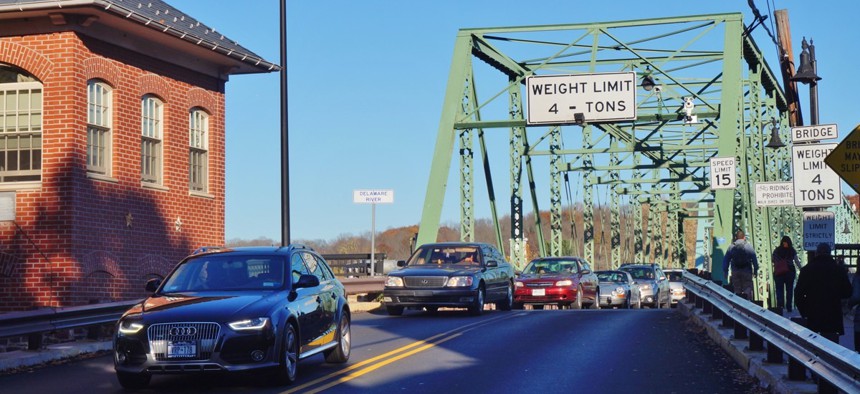Counties Struggle Under Burden of Unfunded Mandates

Bucks County, Pennsylvania

Connecting state and local government leaders
“Both the state and federal governments must be more cognizant of the financial pressures created by unfunded mandates," according to Joel Griffith, the deputy research director at the National Association of Counties.
Federal and state governments increasingly burden the nation's counties with unfunded mandates, with 45 percent of the 48 states with county governments reducing monetary allocations while imposing new directives, according to a new National Association of Counties report.
The number of criminal justice, public safety, health and human services, transportation, infrastructure, and administration mandates are up, according to the “Doing More With Less” report, so much so that 73 percent of states report escalating county mandate numbers or costs, decreased funding or both in the last decade.
Pennsylvania, North Carolina, Texas and Arizona were among the states that increased the number of mandates and decreased funding, while only Montana decreased mandates and increased funding. Among states that either maintained the status quo or else increased or decreased both factors together were California, Oregon and Colorado.

“Both the state and federal governments must be more cognizant of the financial pressures created by unfunded mandates,” Joel Griffith, NACo’s deputy research director and the report’s co-author, said in a statement. “Prudence of a mandate cannot be inferred solely by the constitutionality of that mandate.”
Further muddying the waters is the fact states are limiting the ability of counties to raise the revenue needed to fund programs and services. Of the 45 states where counties collect property taxes, 42 limit that authority. And while only 29 states have counties collect sales taxes, 26 cap them and 19 require voter approval.
Revenues are further affected by economic and technological developments in the form of marijuana legalization, declining oil and natural gas prices, and the rise of ride-hailing apps and Airbnb.
The “dark store” method of assessing big-box stores values operating retail locations as vacant or closed for tax purposes, causing problems for counties in at least 12 states, according to the report:
Counties often lack the human resources needed to challenge these valuations in court, even if financially possible. For instance, until October of 2016, Ala. state law required the local district attorney to handle all ad valorem tax cases within their respective district. Recently passed state legislation permits county boards to retain outside counsel in property tax appeals. Funding is derived from the county’s reappraisal budget. Counties can also take measures to prevent “dark store” appeals. For example, some counties in Ga. issued ordinances prohibiting deed restrictions and requiring big box stores to demolish the building upon discontinuation of retail use. One item on Wisconsin’s county legislative agenda for 2017-2018 in the taxation and finance arena is “Amend property tax assessment to close the ‘dark store’ loophole.” Counties recognize that this loss in property tax revenue results in a higher tax burden for the other property owners in the county, reduced services or both.
While there’s no easy fix for fulfilling mandates while being prohibited from developing revenue streams, public-private partnerships with outside groups that can provide services, lobby for policy changes or create special-purpose taxing districts offer one path forward.
In its report, NACo urges federal and state governments to recognize the pressures counties are under due to unfunded mandates and that full funding for compliance along with increased county autonomy is needed.
“Counties are trailblazing new ways to serve residents,” Matthew Chase, NACo’s executive director, said in a statement. “Ultimately, counties are delivering essential services—like transportation, infrastructure, justice, public health and public safety—as efficiently as possible to improve residents’ quality of life.”
Read the full report here.
Dave Nyczepir is a News Editor at Government Executive’s Route Fifty and is based in Washington D.C.

NEXT STORY: Oregon Behind Schedule on Food Safety Inspections; Kansas Budget Shortfalls Hit Road Projects





